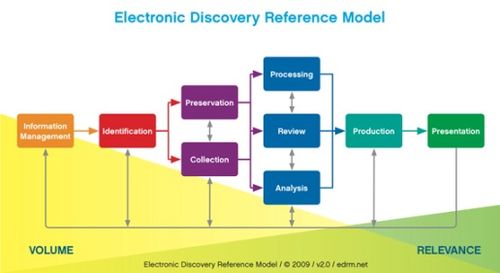Wish There Were Better Standards for Production of Native Files? Enough is ENF! – eDiscovery Trends
Wish There Were Better Standards for Production of Native Files? Enough is ENF! – eDiscovery Trends https://cloudnine.com/wp-content/themes/cloudnine/images/empty/thumbnail.jpg 150 150 CloudNine https://cloudnine.com/wp-content/themes/cloudnine/images/empty/thumbnail.jpg
At the Electronic Discovery Reference Model (EDRM) annual meeting back in May, I provided updates for several of the EDRM projects, two of which (Metrics and Jobs) have already made significant announcements since the meeting. Another project, the new Native Files project, has recently released two white papers authored by EDRM member Wade Peterson (of Bowman and Brooke LLP) proposing the creation and adoption of a new ENF (encapsulated native file) standard for the production of native files.
read more





